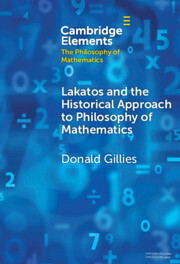Element contents
Lakatos and the Historical Approach to Philosophy of Mathematics
Published online by Cambridge University Press: 27 November 2023
Summary
- Type
- Element
- Information
- Online ISBN: 9781009430609Publisher: Cambridge University PressPrint publication: 21 December 2023
References
- 10
- Cited by

